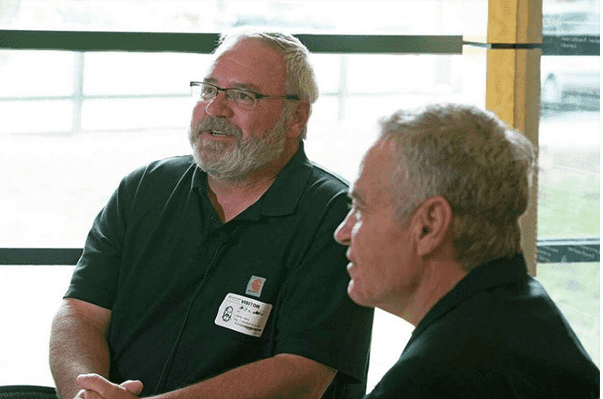
How are you? Really, how are you? Asking this question could have more of an impact on someone’s life than you might realize, especially as we continue to confront COVID-19.
It’s no secret that the global health crisis is rapidly becoming a mental health crisis. The Centers for Disease Control and Prevention offered a snapshot of the trend in a recent survey, taken over one week in late June. Among those surveyed, 11 percent had seriously considered suicide. The rate was significantly higher among those ages 18 to 24, at 26 percent, and among essential workers, at 22 percent.
While we are far from knowing the long-term impact of the pandemic on our physical and mental health, it is clear that the fear, social isolation, and anxiety it has already caused are taking a toll on all of us, particularly those on the front lines. Whether it’s a physician who cared for a patient they couldn’t save, an ICU nurse who helped intubate critically ill patients, or an EVS colleague who worked extra shifts, despite fearing for their own safety — many are likely suffering from depression or even post-traumatic stress disorder. Yet, despite their access to care and knowledge of available resources, many health care workers refuse to seek help. For them, the stigma around mental illness is a barrier to much needed care, or maybe they’re used to putting their own self-care second to that of others. Regardless, they — and all of us — need to know that it’s ok to ask for help.
September is National Suicide Prevention Awareness Month. The Behavioral Health and Spiritual Care services at St. Peter’s Health Partners (SPHP) recognize suicide prevention as a core responsibility of health care. A Zero Suicide grant, received in 2018, has empowered Behavioral Health with evidence-based practices to ensure that any high-risk patients are identified, and needed outreach provided to eliminate barriers, particularly during transitions of care. This means that our help doesn’t stop when you walk out the door, or when your telehealth call ends. It’s a commitment to care that extends to everyone — our patients and our colleagues.
If you or a loved one is experiencing acute mental issues, the Crisis Unit at Samaritan Hospital is available 24 hours a day, 7 days a week, and can be reached at 518-271-3540. You can also contact the Outpatient Mental Health Clinic at Samaritan Hospital at 518-271-3554 or call the National Suicide Prevention Lifeline at 1-800-273-TALK, or text Got5 to 741741.
And don’t forget, there are numerous things you can do each day to help mitigate behavioral health risks:
- Take a break – Give yourself some time away from COVID-related news and discussions.
- Practice self-care – Take time to exercise, eat healthy, and to get enough sleep.
- Avoid alcohol or drugs.
- Connect with others – Identify ways that you can safely stay in touch with your family, loved ones, and friends.
- Remind yourself that strong feelings will fade.
- Practice gratitude – Focus on the present, and on small things to be happy and grateful for in your life.
- Ask for help





